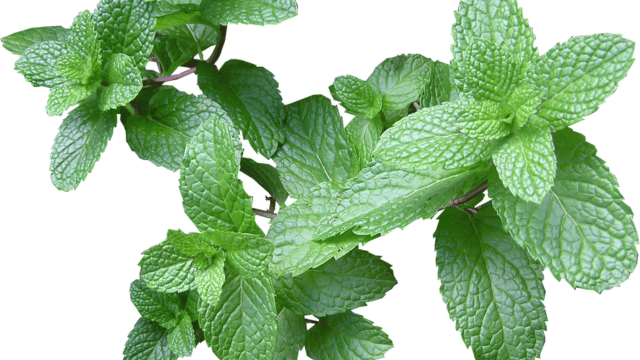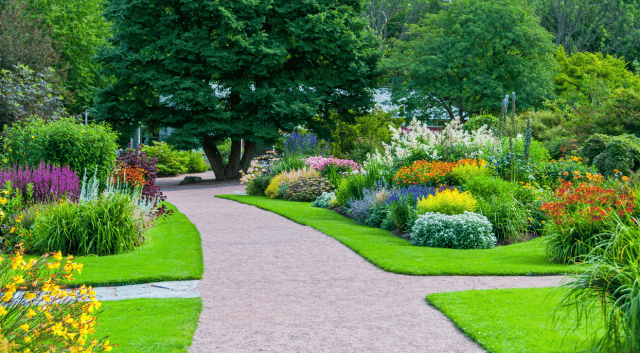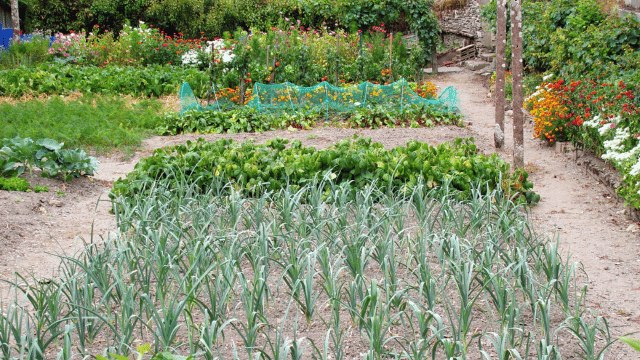When it comes to gardening, there is something truly satisfying about growing your own herbs. Not only do they add a burst of flavor to your favorite dishes, but they also provide numerous health benefits and can even enhance the ambiance of your garden. Whether you have a spacious backyard or a small balcony, cultivating herbs is a rewarding and enjoyable experience. In this article, I will guide you through the process of choosing and cultivating the best herbs for your garden, so you can enjoy the freshness and convenience of homegrown herbs year-round.
Benefits of growing herbs at home
Growing herbs at home offers a multitude of benefits that go beyond just having fresh ingredients readily available. One of the main advantages is the control you have over the quality of the herbs. By growing them yourself, you can ensure that no harmful pesticides or chemicals are used, resulting in healthier and more flavorful herbs. Additionally, cultivating herbs can save you money in the long run, as store-bought herbs can be quite expensive. You can also customize your herb garden to suit your culinary preferences and experiment with unique and exotic herbs that may not be readily available in your local supermarket.
Popular culinary herbs for your garden
When it comes to culinary herbs, there are a few staples that every herb garden should have. These herbs not only add depth and flavor to your cooking but are also relatively easy to grow. One of the most popular culinary herbs is basil. With its vibrant green leaves and distinct aroma, basil is a versatile herb that can be used in a variety of dishes, from pasta sauces to pesto. Another must-have herb is rosemary, known for its pine-like fragrance and robust flavor. Rosemary pairs well with roasted meats and vegetables, adding a savory touch to your culinary creations. Other essential culinary herbs include thyme, parsley, and mint, each offering their own unique flavors and culinary applications.
Medicinal herbs to grow in your garden
In addition to culinary herbs, growing medicinal herbs in your garden can provide you with a natural remedy for various ailments. One such herb is chamomile, known for its calming properties and ability to promote relaxation. Chamomile tea is a popular herbal remedy for insomnia and stress. Another medicinal herb to consider is lavender, which has a soothing aroma and is often used in aromatherapy to promote relaxation and reduce anxiety. Echinacea, commonly known as purple coneflower, is another valuable herb known for its immune-boosting properties. By cultivating these medicinal herbs in your garden, you can have easy access to natural remedies whenever you need them.
Aromatic herbs for a fragrant garden
If you want to enhance the ambiance of your garden and create a fragrant oasis, consider growing aromatic herbs. These herbs not only add a delightful scent to your garden but can also be used to create potpourri, herbal sachets, or infused oils. One aromatic herb that is a must-have for any garden is lavender. With its delicate purple flowers and soothing aroma, lavender adds a touch of elegance and relaxation to any outdoor space. Another aromatic herb to consider is lemon balm, which has a refreshing citrus scent that can uplift your spirits. Mint, with its invigorating fragrance, is another fantastic option that adds a burst of freshness to your garden.
Tips for successful herb cultivation
While growing herbs can be a rewarding experience, it does require some basic knowledge and care. Here are a few tips to ensure successful herb cultivation:
Choose the right location: Most herbs thrive in full sun, so choose a location in your garden that receives at least 6 hours of direct sunlight each day.
Provide well-draining soil: Herbs prefer soil that is well-draining and rich in organic matter. If your soil is heavy or clay-like, consider amending it with compost or sand to improve drainage.
Water properly: Most herbs prefer moderate watering, so avoid overwatering as it can lead to root rot. Water your herbs when the top inch of soil feels dry to the touch.
Prune regularly: Regular pruning not only keeps your herbs looking neat and tidy but also encourages healthy growth. Remove any dead or yellowing leaves and pinch back the tips to promote bushier growth.
Harvest with care: When harvesting your herbs, be sure to use clean, sharp scissors or pruning shears. Harvest in the morning when the essential oils are at their peak for the best flavor and aroma.
Essential tools and supplies for herb gardening
To ensure successful herb gardening, it is important to have the right tools and supplies on hand. Here are some essential items you will need:
Garden gloves: Protect your hands from thorns, pests, and soil with a good pair of garden gloves.
Trowel: A trowel is a small handheld tool that is essential for planting herbs and digging small holes.
Pruning shears: Pruning shears are necessary for trimming and harvesting your herbs.
Watering can or hose: Depending on the size of your garden, you will need either a watering can or a hose with a spray nozzle to water your herbs.
Organic fertilizer: To ensure healthy growth, consider using an organic fertilizer specifically formulated for herbs.
Designing your herb garden
Designing your herb garden is an exciting opportunity to unleash your creativity and create a visually stunning space. Consider these design elements when planning your herb garden:
Layout: Decide whether you want a formal or informal layout for your herb garden. Formal layouts often feature symmetrical plantings and defined borders, while informal layouts have a more relaxed and natural look.
Container gardening: If you have limited space or want to grow herbs on a balcony or patio, consider using containers. Choose containers that are large enough to accommodate the herbs’ root systems and provide adequate drainage.
Companion planting: Some herbs thrive when planted together, while others do better when grown separately. Research companion planting to maximize the health and productivity of your herbs.
Vertical gardening: If you have limited space, vertical gardening is a great option. Utilize trellises, hanging baskets, or wall-mounted planters to grow herbs vertically, saving valuable ground space.
Common herb gardening mistakes to avoid
While herb gardening can be relatively easy, there are a few common mistakes that beginners often make. By avoiding these pitfalls, you can ensure the success of your herb garden:
Overwatering: Overwatering can cause root rot and other diseases. Ensure proper drainage and water your herbs only when needed.
Poor soil preparation: Herbs thrive in well-draining soil, so take the time to prepare your soil before planting. Amend with compost or organic matter to improve drainage and fertility.
Neglecting pruning: Regular pruning is essential for healthy growth. Neglecting to prune can result in leggy, unproductive plants.
Ignoring pests: Keep an eye out for common herb garden pests such as aphids, slugs, and snails. Regularly inspect your herbs and take action if you notice any signs of infestation.
Conclusion:
Cultivating herbs in your garden is a gratifying endeavor that offers a multitude of benefits. From the convenience of having fresh ingredients at your fingertips to the joy of creating a fragrant and visually appealing garden, growing herbs is a rewarding experience. By following the tips and guidelines outlined in this article, you can successfully cultivate a wide variety of culinary, medicinal, and aromatic herbs. So, roll up your sleeves, grab your gardening tools, and embark on the journey of growing your very own herb garden. Enjoy the rewards of your hard work and savor the flavors and aromas of your homegrown herbs!


